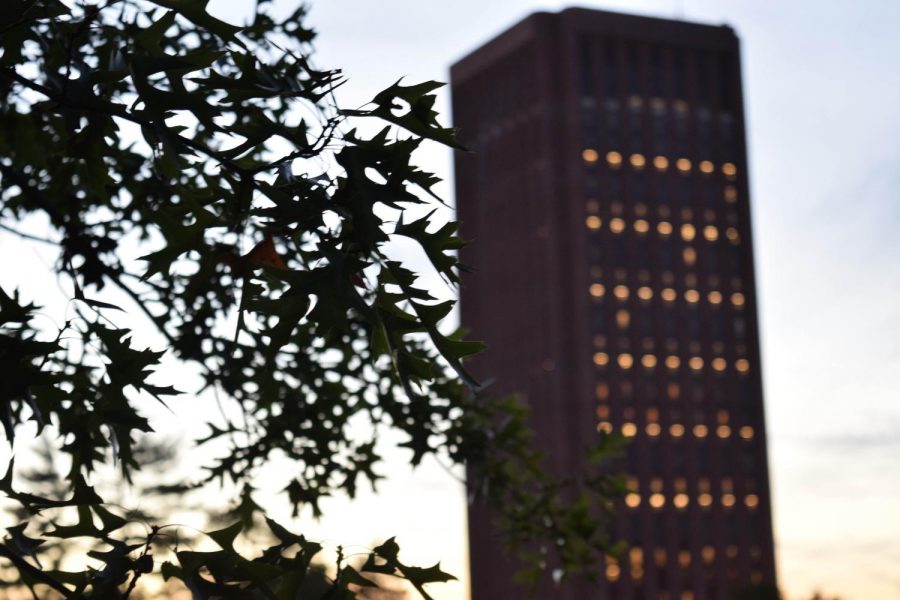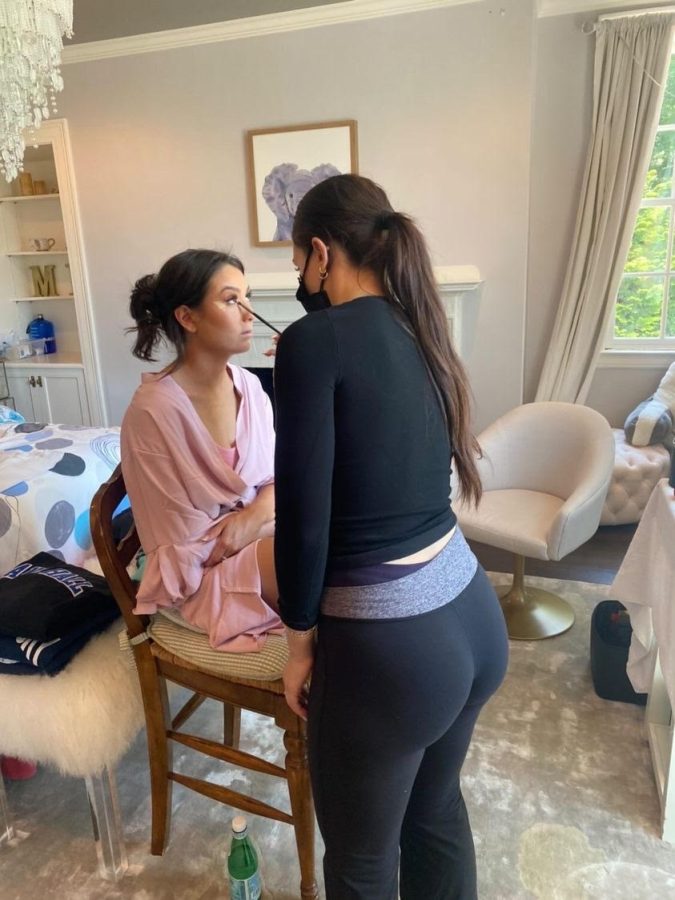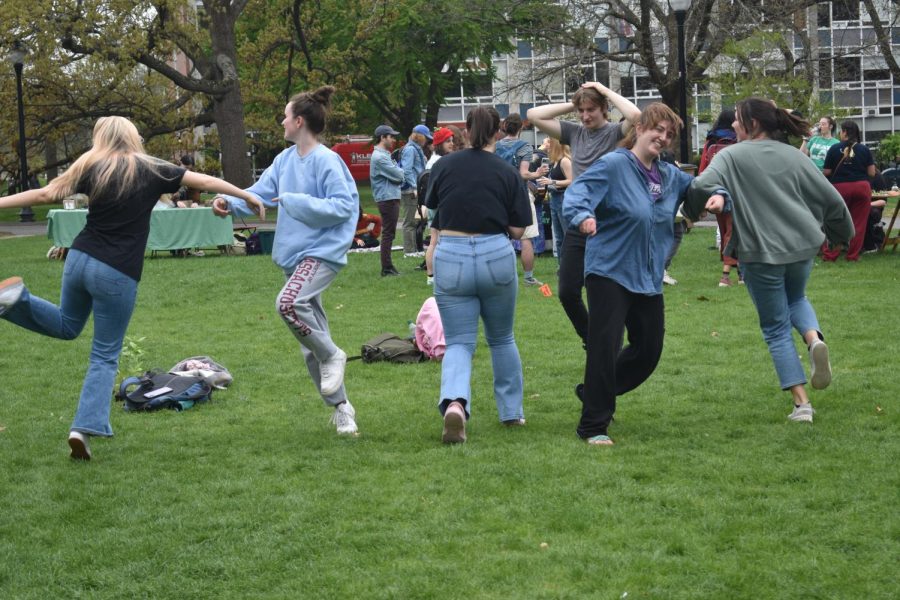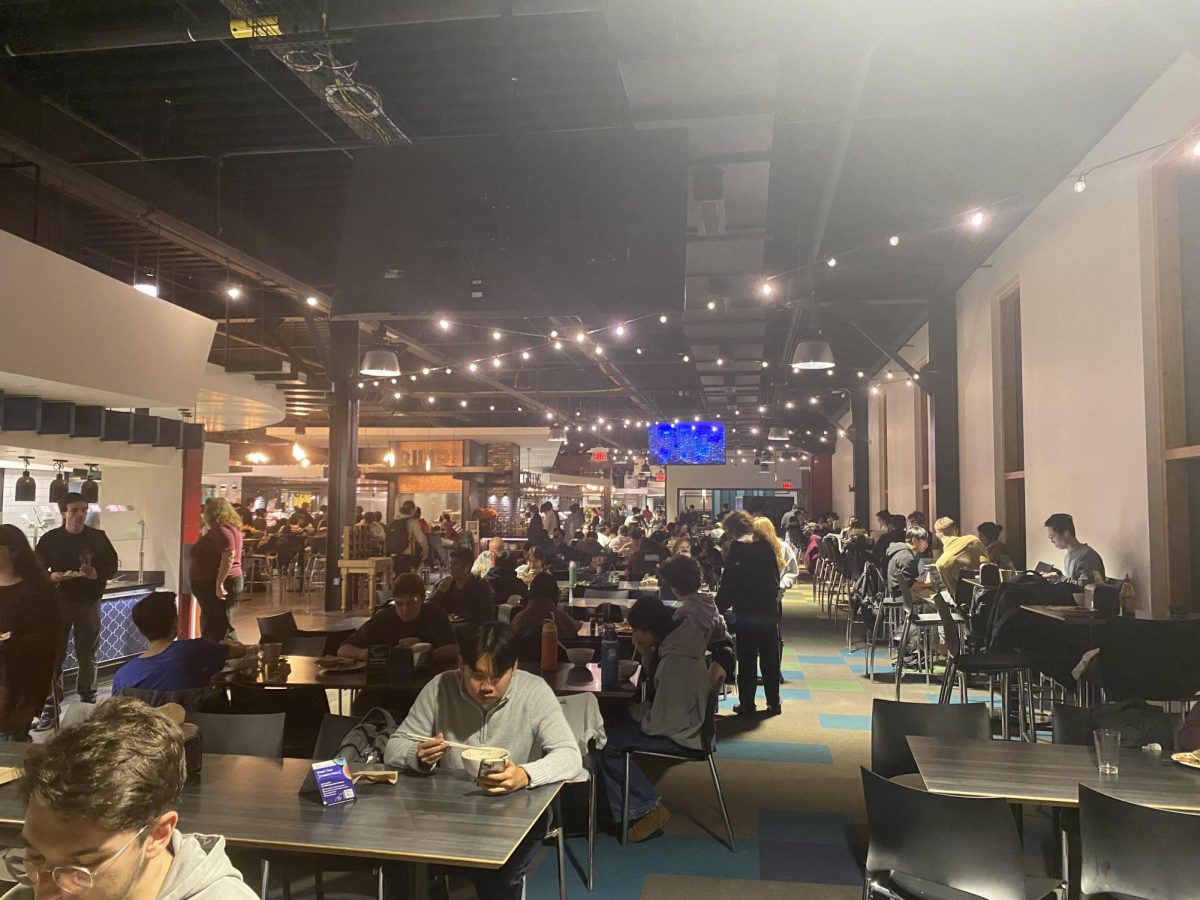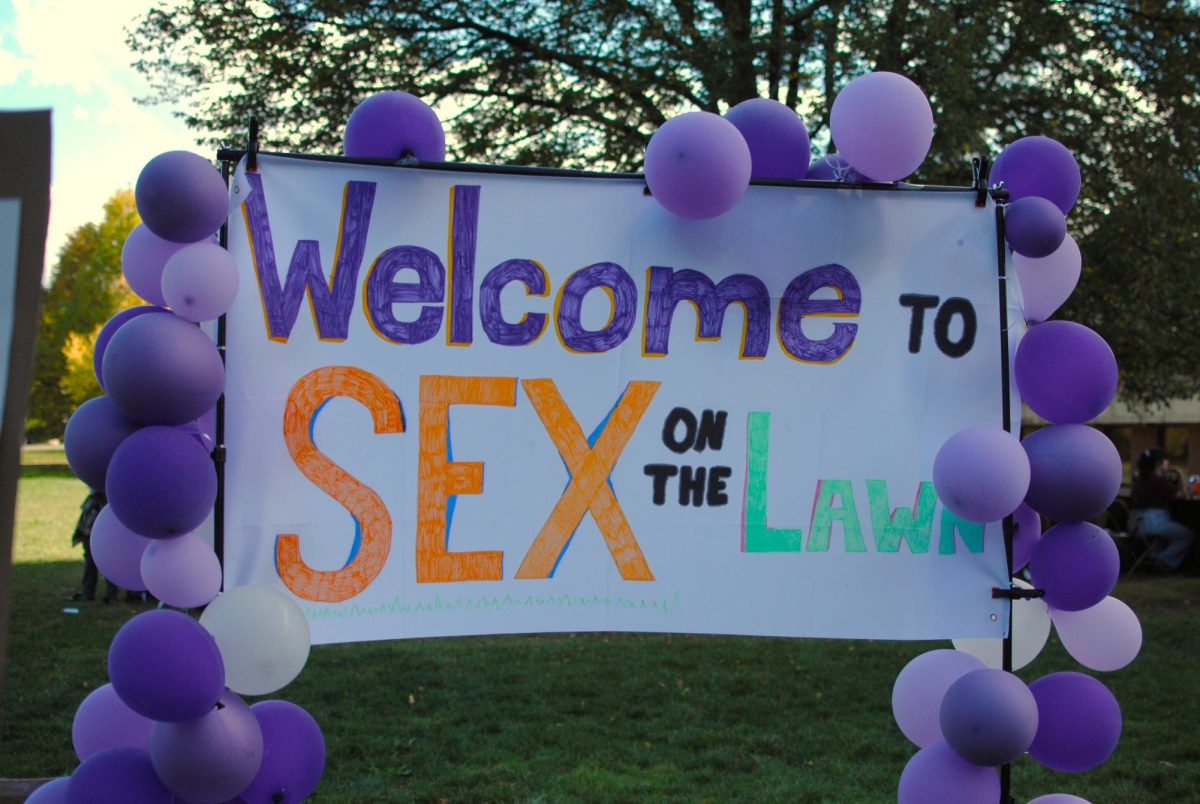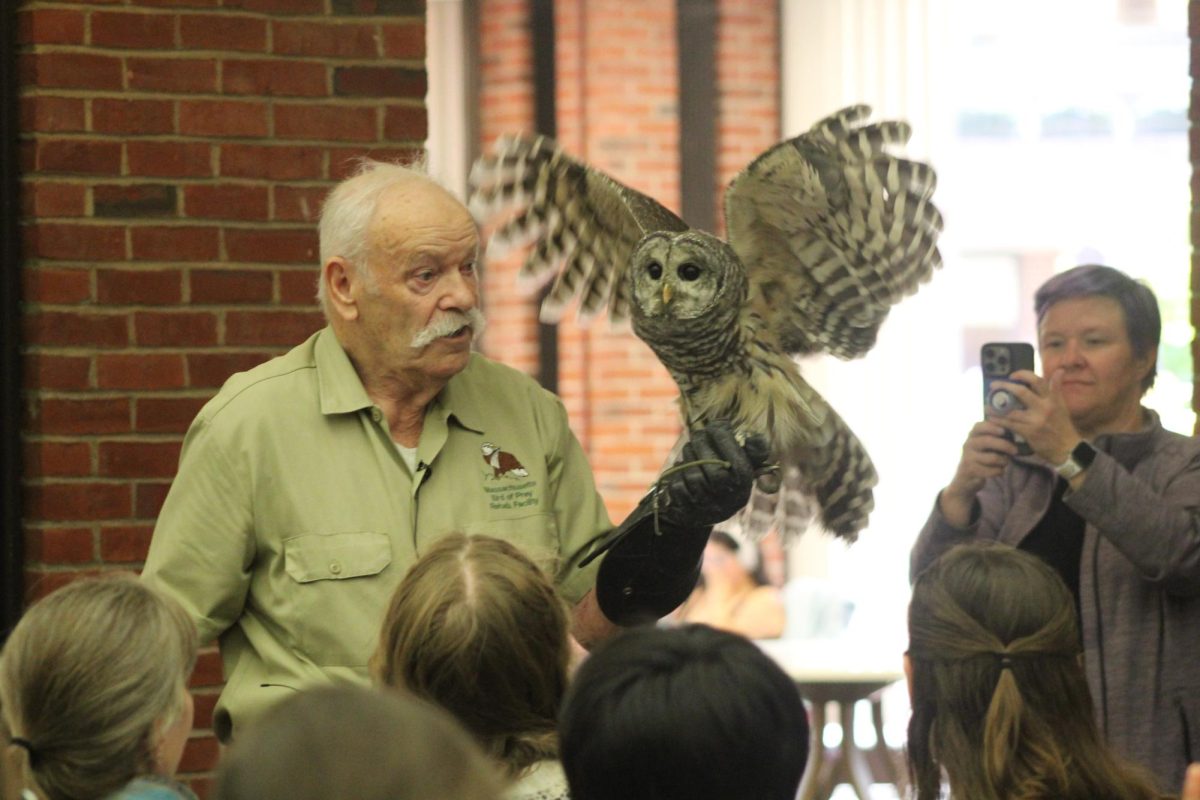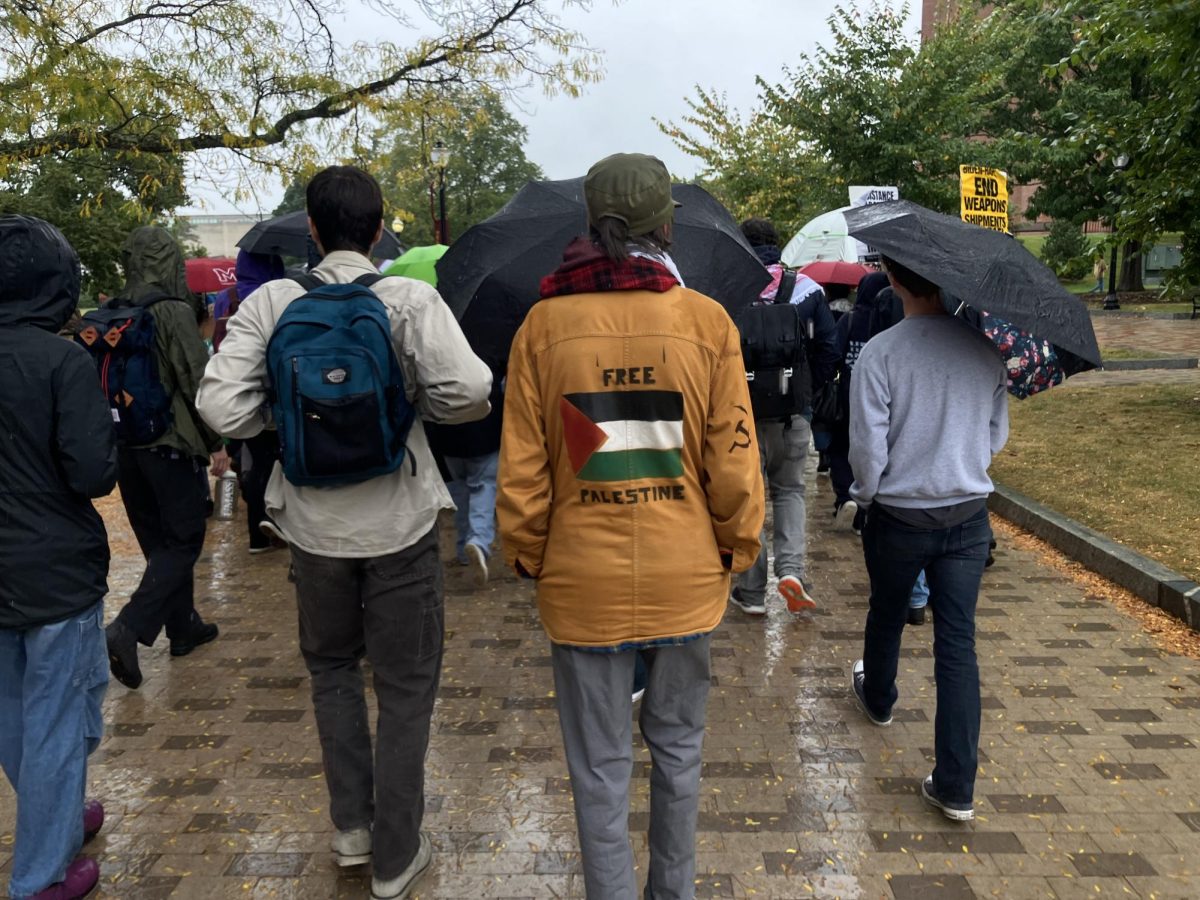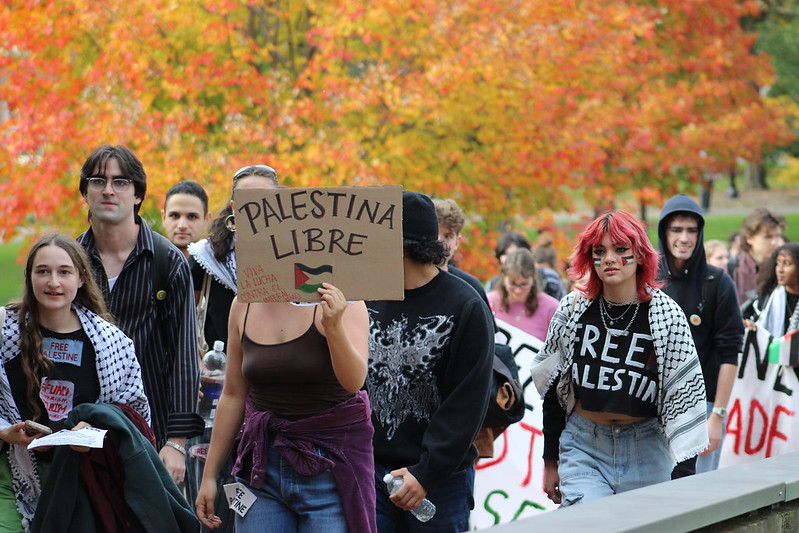Growing up poor with a single mom, Vincent Iovane found it difficult to stay out of trouble. Never one to conform, he was used to repeatedly getting the same punishments–no TV, no friends, no fun. But to him, this wasn’t a punishment. It was an opportunity to do something he loved more: read.
Throughout his childhood, Iovane had a dream. He was going to be a poet, living off the land. But, after he graduated high school, that dream fell to the wayside. Instead, he worked in construction and retail, eventually realizing the only thing that either brought him was dissatisfaction.
“That’s when it clicked, and I started taking my skills and applying them to something that I could actually do for a living,” Iovane said.
So, at 28 years old, he started over. He enrolled at Long Island University Post and worked toward his undergraduate degree in English education. Nearly a decade later, Iovane received his master’s degree in English literature from Queens College.
Though he started later than most, thousands have shared in Iovane’s pursuit of humanities for a higher education. As of 2023, in Poughkeepsie, New York, the town where Iovane now lives, there are an estimated 2,792 individuals with a bachelor’s degree in the arts, humanities or related fields, according to the United States Census Bureau’s American Community Survey. This is approximately 22% of the total population of Poughkeepsie residents over 25 years old with a bachelor’s degree.
However, experts fear that this population will decline in the future, not just locally but nationwide, as it has in recent years with the number of humanities degrees awarded annually. Robert B. Townsend, the director of humanities, arts and culture at the American Academy of Arts and Sciences, noted that, though the population receiving associates degrees in humanities-related fields has risen over the last three decades, those receiving bachelor’s, master’s and doctoral degrees have fallen, each to a lower rate than its former. For this data, Townsend referenced the National Center for Education Statistics, which conducted a survey on the number of humanities degrees awarded in postsecondary education from 1988 to 2020.
Townsend attributed this trend to two primary factors: rising higher education costs and student debt, for one, and relatively lower earnings for humanities graduates, for the other. Though Townsend recognized the validity of the latter, he believes that the focus on humanities as opposed to other majors is misdirected. Per the AAA&S’ Humanities Indicators Survey, the average unemployment rates, earnings and job satisfaction of humanities graduates is akin to that of other majors.
“It’s kind of strange that they end up being lumped in as these sort of sad sacks who aren’t going to come out fine financially, or by any of these other metrics. In the end, it’s just not true when you look at the numbers,” Townsend said.
Julia Fokas, an English major at the University of Massachusetts Amherst, said she often hears from her peers and extended family that her major is stupid or too easy.
“I do kinda think I internalized it a bit. … I feel sometimes like I’m wasting this money to go to college just to get a career that’s not gonna pay me that well,” Fokas said.
With a long history in the field of humanities, Townsend is concerned for the subject as both an academic discipline and a leisure activity. Fundamentally, he said that humanities courses teach students how to research and gather information, then analyze, synthesize and communicate it back to a larger audience. But, according to Townsend, the courses’ transferable skills extend beyond that.
“They provide a lot of the connective tissue for different ways of thinking about the world–thinking about both past, present and future–and helping us figure out how to engage with other human beings who are from different cultures and different perspectives,” he said.
The skills developed in humanities courses are highly valued in the workforce, according to Norman Bradburn, a social scientist and a distinguished senior fellow at NORC at the University of Chicago. “You talk to business people, and they think it’s great to have people who have done a lot of work in humanities. They don’t care about majoring so much, but they want people who know how to think, write and read critically. They’re general skills that have applicability all over the place,” he said.
The AAA&S’ Humanities Indicators revealed that, in 2018, graduates with bachelor’s degrees in the humanities made up more than 10% of the employees in every occupational category, excluding those that are directly related to STEM. They accounted for 4% of those employed in the fields of science and engineering, 5% in healthcare and 7% in computers and technology.
However, for Fokas, a humanities student, these assurances aren’t enough. Before entering college, she wanted to use her degree to work in publishing or editing. But, over time, she’s grown more concerned with how that will pan out long term.
“I’m minoring in education now, so that I can teach English, which is a pretty big change from what I wanted to do,” she said. Though Fokas is unsure of this decision, she believes it’s a safer way to get a job after graduation.
Today, Iovane is not a poet, but a high school English teacher. Though his childhood dream never quite took shape, Iovane has no regrets about his career choices. He teaches with the hope of inspiring in his students the same interest in humanities that he had as a teenager. But, as time passes, Iovane said that students only seem interested in the grades they get on essays, and how those will affect their overall grade point average.
“When I was growing up, you saw a lot of people, even if they were interested in books, they wouldn’t admit it, because then they weren’t cool. Meanwhile, I was the idiot walking around with a poetry book in my back pocket,” Iovane said. “It was innate in me. I think with other people it has to be developed. And the way our society is, it’s not being developed.”


